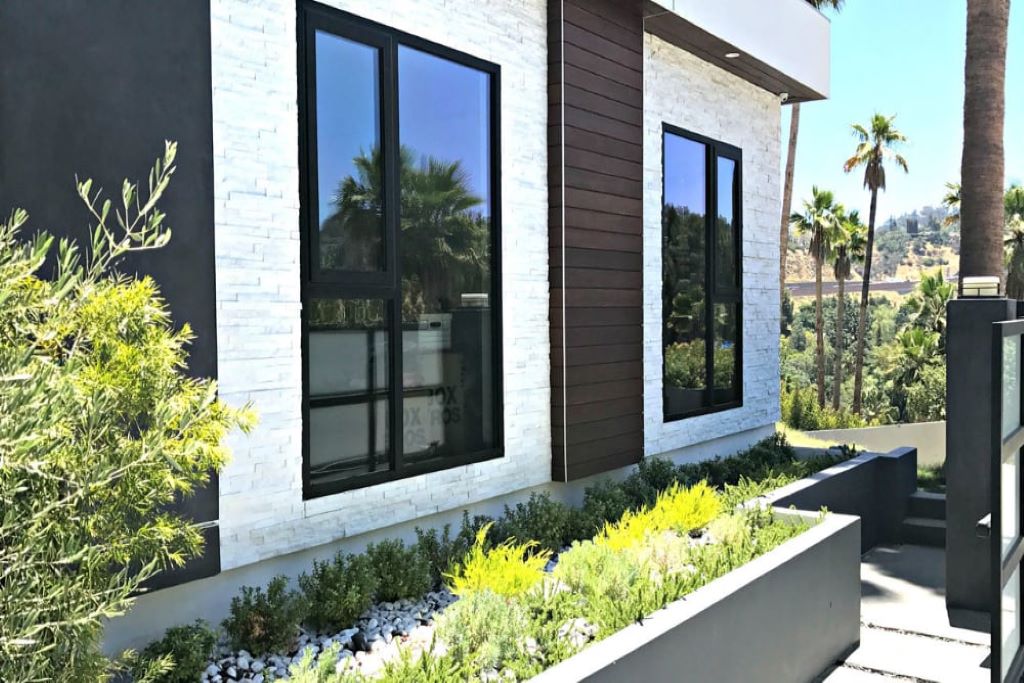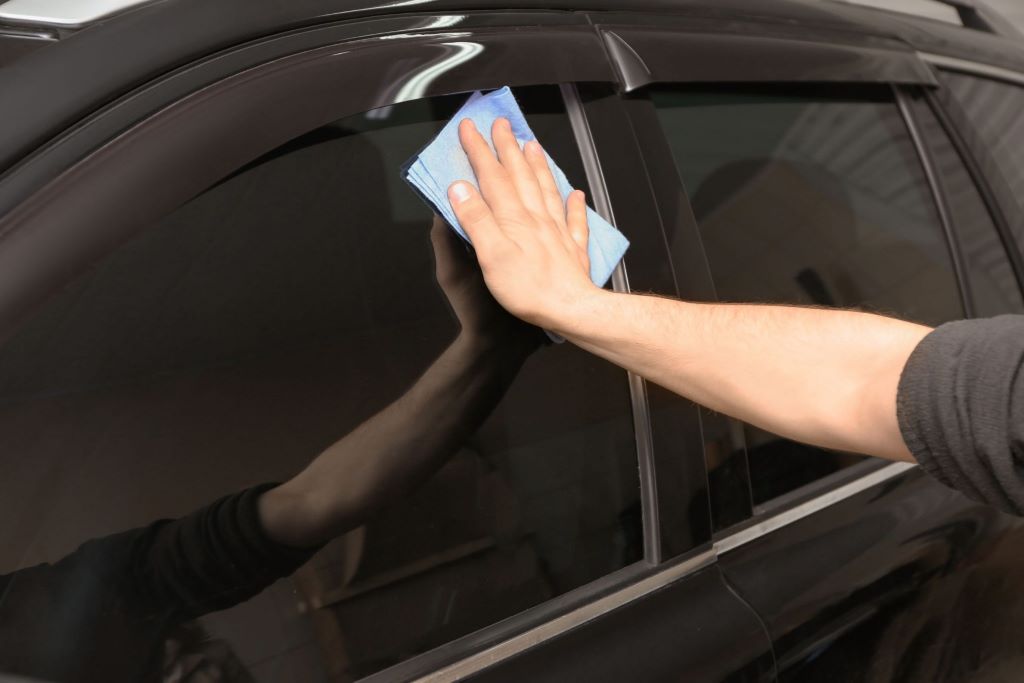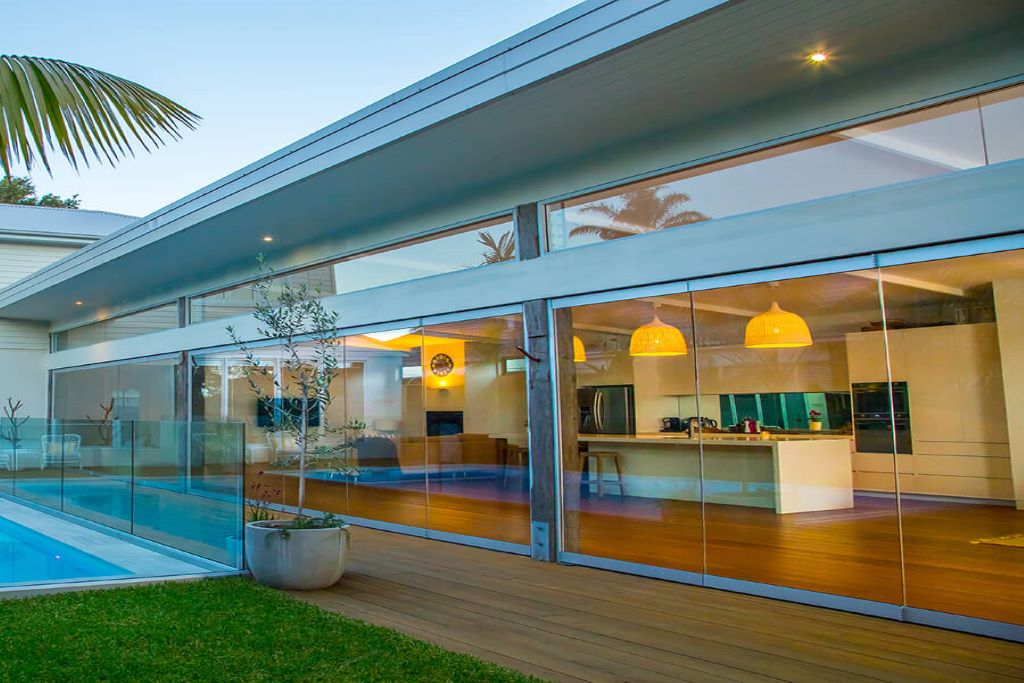Heat Control Window Film
Heat Control Window Film is a type of window tinting that is becoming increasingly popular for residential and commercial buildings. These films block out much of the sun’s heat, allowing natural light to enter a room. This helps to reduce the amount of energy needed to cool a space, resulting in lower energy bills and a more comfortable environment. In addition to providing energy efficiency, heat control window films offer privacy and protect furnishings and interiors from sun damage. With various options available in color, opacity, and performance, heat control window film is a versatile and cost-effective solution for improving the comfort and efficiency of any building.
How Heat Control Window Film Works
Heat control window film works by reflecting or absorbing sunlight and heat from the sun. It comprises multiple layers of thin, transparent material applied to the glass’s surface.
The film contains metalized particles, dyes, and pigments that selectively absorb or reflect specific wavelengths of light. These materials are engineered to reduce the heat and UV radiation that passes through the glass, allowing visible light to enter the room.
When sunlight hits the film, the metalized particles absorb some energy while others are reflected out. The absorbed energy is dissipated through the film’s layers and released into the surrounding environment.
Benefits of Heat Control Window Film

Lowering energy bills:
One of the significant benefits of heat control window film is that it can help reduce your energy bills by keeping your home or office cooler during hot weather. The window film blocks the sun's heat and reduces the need for air conditioning, which can lead to significant energy savings.

Reducing glare:
Heat control window film can also help reduce glare in your home or office. Glare can be particularly problematic in areas where you work or watch television, and the window film can reduce the amount of glare and make the space more comfortable.

Protecting against UV rays:
Heat control window film can block up to 99% of harmful UV rays, which can cause damage to your skin and fade your furniture, carpets, and artwork over time. The window film can protect your family and belongings by blocking these rays.

Enhancing privacy:
Heat control window film can also provide privacy by reducing the visibility of the interior of your home or office from the outside. This can be particularly useful if you live in a densely populated area or work in a high-traffic location.

Improving comfort:
Finally, heat control window film can enhance the overall comfort of your home or office by reducing the amount of heat that enters the space. This can make the area more comfortable during hot weather and reduce the need for air conditioning, leading to a more pleasant and healthier environment.
The Benefits of Window Tinting By The Numbers
High-Quality Commercial Window Tinting offers a number of benefits to business owners in Chicago, Naperville, Countryside, and the surrounding area. Perfection Window Films is proud to offer the best window tinting solutions to commercial and retail property owners.
3 YEARS
Window Tinting Pays For Itself In Energy Efficiency Savings
30%
Reduction In Energy Costs With Window Film
91%
Lower Cost For Window Film Versus Window Replacement
79%
Sun’s Heat Blocked By Window Film
Types of Heat Control Window Film

Reflective window film:
Reflective window film is a type of heat control window film that reflects sunlight and solar heat away from the window. It typically consists of a layer of metalized film that reflects the sun’s rays and reduces the amount of heat that passes through the glass. Reflective window film is often used in commercial buildings but can also be used in homes to reduce energy costs and improve comfort.

Ceramic window film:
Ceramic window film is a type of heat control window film that uses ceramic particles to reflect and absorb solar heat. It is a relatively new technology that offers high heat rejection levels without metalized films. Ceramic window film is known for its high clarity and ability to block infrared and ultraviolet light. It is also scratch-resistant and can provide additional security by strengthening windows.

Low-emissivity (Low-E) window film:
Low-E window film is a heat control film that reflects radiant heat into the room. It is a thin, transparent film applied to the windows’ inside surface. Low-E window film is designed to allow visible light to pass through while reflecting infrared radiation. This helps to keep rooms more relaxed in the summer and warmer in the winter by reducing heat transfer through the windows. Low-E window film can also reduce energy costs and improve the efficiency of HVAC systems.
HOW EFFECTIVE ARE TINTED WINDOWS?
Tinted windows are known to protect the property’s interior from harmful UV rays, which can cause fading of furniture, flooring and furnishings. Experts say window tint can block up to 99% of UV light. In addition to protecting the home or business’s interior, tinted windows can reduce the heat entering the property making it more comfortable for the occupants.
Factors to Consider when Choosing Heat Control Window Film
Climate and temperature:
The weather and temperature in your region will affect the type of window film you should choose. If you live in a hot and sunny area, you’ll want a film with a high solar heat rejection rate to keep your home cool and reduce energy costs. In contrast, if you live in a colder region, you may want a film that helps retain heat in your home during winter.
Window size and type:
The size and type of windows in your home will also affect your choice of window film. Some films are designed for large or specific windows, such as double-pane or Low-E windows. You’ll want to choose a film compatible with your windows to ensure optimal performance.
Budget and cost-effectiveness:
Window films come in a range of prices, and the cost will depend on the quality of the film, the size of your windows, and other factors. Consider your budget and look for a film with good value for money. Keep in mind that while some films may be more expensive upfront, they may offer more significant energy savings in the long run, making them more cost-effective over time.
FAQ's
Yes, installing heat control window film on your own is possible. However, it requires some skill and experience to achieve a clean, bubble-free installation. If you need help installing the film correctly, it is best to hire a professional installer.
Yes, installing heat control window film on your own is possible. However, it requires some skill and experience to achieve a clean, bubble-free installation. If you need help installing the film correctly, it is best to hire a professional installer.
Yes, it is possible to remove the heat control window film later. Most films are designed to be easily removable without leaving any residue or damaging the window. However, the ease of removal may depend on the quality of the film and the length of time it has been installed.
The lifespan of heat control window film depends on the quality of the film and the conditions in which it is installed. Most high-quality films are designed to last at least 10 years; some can last up to 20 years or more with proper maintenance and care.
If the window film gets damaged, it can be replaced without replacing the entire window. Some manufacturers offer warranties that cover damage to the film, while others may offer a replacement at a discounted cost. It is best to contact the manufacturer or installer to inquire about replacement options.
Heat control window film can affect your windows’ appearance, but many different styles and shades are available to choose from. Some films are virtually invisible, while others may have a tint or reflective surface that can change the look of your windows.
Yes, heat control window film can be a good investment for homeowners and business owners looking to reduce their energy costs and protect their interiors from UV damage. While the upfront cost may be higher than other window treatments, the long-term benefits can make it a worthwhile investment.
Heat control window film is generally easy to maintain. It can be cleaned with mild soap, water, and a soft cloth. However, abrasive cleaners or materials should be avoided, as they can scratch or damage the film.
Heat control window film can be used on most types of windows, including single-pane, double-pane, and low-E windows. However, it is crucial to choose the right type of film for your specific window type and to follow the manufacturer’s instructions for installation.
Contact Us Today!
Heat control window film is an excellent solution for homeowners and businesses looking to reduce their energy bills, improve indoor comfort, and protect their furniture and valuables from sun damage. With its advanced technology and easy installation, window film can significantly improve the energy efficiency of your home or office while providing a more comfortable and productive environment for your family or employees.
If you’re interested in learning more about heat control window film or would like to get a quote for your property, please don’t hesitate to contact us. Our team of experts is always available to answer any questions and help you find the right solution for your specific needs. We offer a wide range of window film products and services, and we’re confident that we can help you find the perfect solution to meet your goals.
So why wait? Take action today and start enjoying the many benefits of heat control window film. Contact us to schedule your consultation and start your journey toward a more energy-efficient, comfortable, and secure home or office.

